
Exchange-traded funds, already wildly popular among equity investors, were emerging as a cheaper, easier way to build a fixed-income portfolio than investing in a mutual fund. But after a decade-long bull market, no one could be sure how the new products would perform in a downturn. Would they exacerbate turmoil in their underlying markets?
Finally, near the end of 2018, the founder of SGH Wealth Management in Southfield, Mich., decided to give them a try, investing about 27% of the firm’s assets in the funds. Throughout 2019, things seemed to be working well, Huszczo says. Then the coronavirus became a global pandemic, plunging stock and bond markets into a downturn.
Huszczo, like so many other money managers who overcame trepidations and piled into the new market, could only watch as the record volatility that plagued U.S. bond markets in March led to share prices of bond ETFs trading at deep discounts to the value of their underlying assets. On March 23 the Federal Reserve said it would buy corporate debt and eligible ETFs and then expanded the program weeks later to high-yielding securities to keep credit flowing.
“Everything was in a free fall until the Fed stepped in,” says Huszczo, who turns 39 in July. “No one likes to see their bond portfolio go down like that.”
By early May, with that big assist from the U.S. central bank, the consensus was that fixed-income ETFs had—for the most part—passed their first big test. But it was a roller-coaster ride along the way.
After years of sluggish growth, ETFs that track corporate or government debt last year took in more than $150 billion in the U.S., the most on record and just short of the sum attracted by equity ETFs. That’s boosted total assets to about $858 billion, or roughly 21% of U.S. ETF assets, data compiled by Bloomberg Intelligence show.
هذه القصة مأخوذة من طبعة June - July 2020 من Bloomberg Markets.
ابدأ النسخة التجريبية المجانية من Magzter GOLD لمدة 7 أيام للوصول إلى آلاف القصص المتميزة المنسقة وأكثر من 9,000 مجلة وصحيفة.
بالفعل مشترك ? تسجيل الدخول
هذه القصة مأخوذة من طبعة June - July 2020 من Bloomberg Markets.
ابدأ النسخة التجريبية المجانية من Magzter GOLD لمدة 7 أيام للوصول إلى آلاف القصص المتميزة المنسقة وأكثر من 9,000 مجلة وصحيفة.
بالفعل مشترك? تسجيل الدخول
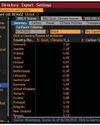
See Which Countries Are Falling Behind On Climate Change
Under the Paris Agreement, 190 countries and the European Union pledged to take steps to hold the global temperature rise to less than 2C (3.6F) from preindustrial levels—and preferably 1.5C.
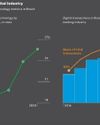
Billionaires Vie for the Future of Brazilian Finance
An escalating battle between two billionaires is upending the financial community in São Paulo, Latin America’s wealthiest city.

Ford Foundation's Darren Walker: ‘We Have to Get Uncomfortable'
DARREN WALKER, 62, disrupted his Wall Street life more than 25 years ago when he left what is now UBS Group AG to volunteer at a school and eventually pursue a career in community development and philanthropy. Since 2013 he’s been at the pinnacle of the philanthropic world as president of the Ford Foundation, created by the family of automaker Henry Ford during the Great Depression to advance human welfare.

Fueling the Ener Transition
I MAY BE BIASED, but some of the most important research and data on the Bloomberg terminal lies in one of its lesser-known functions: {BNEF }
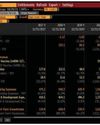
Dig Into Analysts' Estimates for Disruptive Companies
THE PANDEMIC ERA generated a whole wave of disruptive companies as it accelerated the introduction of new products and services in areas including artificial intelligence, digitization, electronic payments, online meeting platforms, and virtual currencies.
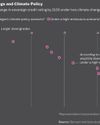
Climate Risks Come for Sovereign Credit
FOR YEARS climate scientists have warned about the ferocious wildfires and hurricanes that are now overwhelming many communities. Today alarms are ringing about a related financial danger: risks lurking within government bonds, the biggest part of the global debt market.

Responsible-Investing Pioneer Lydenberg Says ESG Needs An Upgrade
STEVE LYDENBERG’S passion for social change was inspired by anti-Vietnam War demonstrations, consumer boycotts, and the movement to divest from apartheid South Africa. But he didn’t take to the streets. Instead, Lydenberg turned to the world of finance to help catalyze societal change.

Engine No. 1's Grancio: ‘People Will Appreciate an Economic Argument'
ENGINE NO. 1 sent shock waves across corporate America in May when the fledgling investment firm won a boardroom battle with Exxon Mobil Corp., securing three seats on the oil and gas giant’s board after purchasing only about $40 million of its stock.
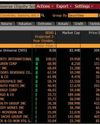
Find Out Which Companies May Ramp Up Payouts After Covid
AS THE PANDEMIC DISRUPTED business last year, many companies cut or suspended dividends. Which will boost their payouts when economies pick up again?
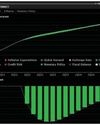
Get Into the Minds of Central Bankers as They Navigate Shocks
HAVE YOU EVER WONDERED how central bankers forecast the impact of shocks on the economy?